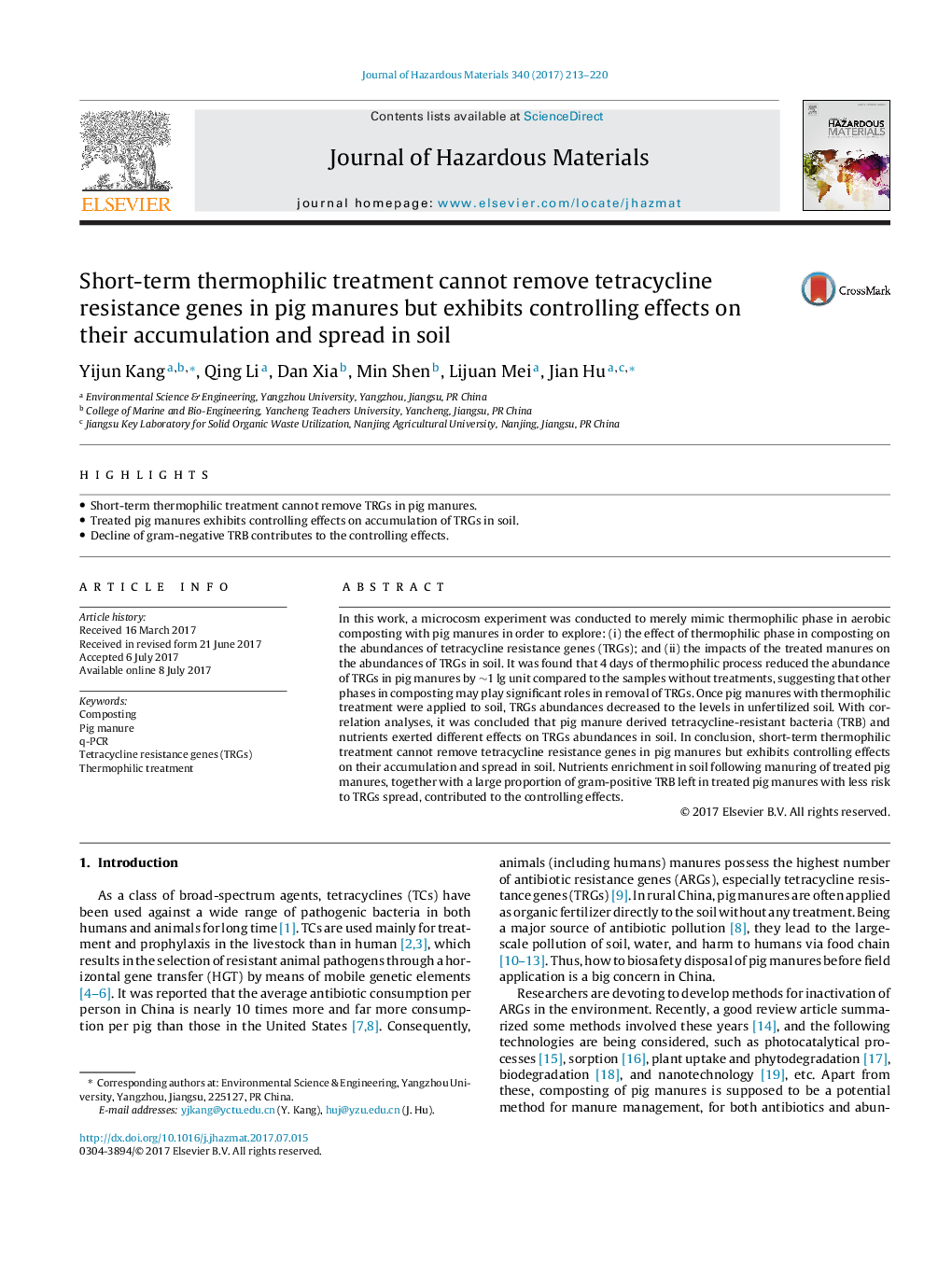| Article ID | Journal | Published Year | Pages | File Type |
|---|---|---|---|---|
| 4979209 | Journal of Hazardous Materials | 2017 | 8 Pages |
Abstract
In this work, a microcosm experiment was conducted to merely mimic thermophilic phase in aerobic composting with pig manures in order to explore: (i) the effect of thermophilic phase in composting on the abundances of tetracycline resistance genes (TRGs); and (ii) the impacts of the treated manures on the abundances of TRGs in soil. It was found that 4Â days of thermophilic process reduced the abundance of TRGs in pig manures by â¼1 lg unit compared to the samples without treatments, suggesting that other phases in composting may play significant roles in removal of TRGs. Once pig manures with thermophilic treatment were applied to soil, TRGs abundances decreased to the levels in unfertilized soil. With correlation analyses, it was concluded that pig manure derived tetracycline-resistant bacteria (TRB) and nutrients exerted different effects on TRGs abundances in soil. In conclusion, short-term thermophilic treatment cannot remove tetracycline resistance genes in pig manures but exhibits controlling effects on their accumulation and spread in soil. Nutrients enrichment in soil following manuring of treated pig manures, together with a large proportion of gram-positive TRB left in treated pig manures with less risk to TRGs spread, contributed to the controlling effects.
Related Topics
Physical Sciences and Engineering
Chemical Engineering
Chemical Health and Safety
Authors
Yijun Kang, Qing Li, Dan Xia, Min Shen, Lijuan Mei, Jian Hu,
